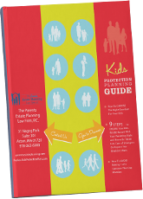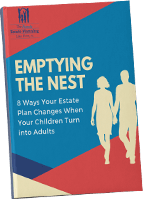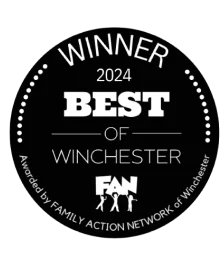It’s a common misconception to think that if you don’t have children (or your children are adults,) you don’t need to worry about an estate plan. The fact is, it is just as important to have a plan if you don’t have kids, or if they’re over age 18 as it is when they are young. The specifics of your unique plan might be different, but everyone needs a plan.
Some of the common thoughts behind this mistaken belief may take one of these forms:
“If I die, everything will pass to my spouse anyway, so why bother?”
“I’m single with little wealth, so who cares who gets my few meager assets?”
“Estate planning is an expensive hassle and it doesn’t even benefit me because I’ll be dead.”
“My kids are grown. I’m better off letting a them handle things.”
This kind of thinking ignores several basic facts about both estate planning and life in general. Regardless of your marital status, if you don’t have children, you face potential estate-planning complications which those with children do not. And this is true whether you’re wealthy or have very limited assets.
Without proper estate planning, you’re not only jeopardizing your personal property, but you’re putting your life at risk, too. And that’s not even mentioning the potential conflict and expense you’re leaving for your surviving family and friends to deal with.
So, Part 1 of this article will cover those without children. If you don’t have children, consider these three inconvenient truths before you decide to forego estate planning.
Someone will get your stuff
Whether you’re rich, poor, or somewhere in between, in the event of your death everything you own will be passed on to someone. Without a will or trust, your assets will go through probate, where a judge and state law will decide who gets everything you own. This process takes- at a minimum- a year, and is part of the public record. In the event no family steps forward, your assets will become property of your state government.
Why give the state everything you worked your life to build? And even if you have little financial wealth, you undoubtedly own a few sentimental items, (including pets,) that you’d like to pass to a close friend or favorite charity.
However, it’s rare for someone to die without any family members stepping forward. It’s far more likely that some relative you haven’t spoken with in years will come out of the woodwork to stake a claim. Without a will or trust, state laws establish which family member has the priority inheritance. If you’re unmarried with no children, this hierarchy typically puts parents first, then siblings, then more distant relatives like nieces, nephews, uncles, aunts, and cousins.
Depending on your family, this could have a potentially dangerous—even deadly—outcome. For instance, what if your closest living relative is your estranged brother with serious addiction issues? Or what if your assets are passed on to a niece who’s still a child and likely to squander the inheritance?
And if your estate does contain significant wealth and assets, this could lead to a costly and contentious court battle, with all of your relatives hiring expensive lawyers to fight over your estate—which is exactly what’s happening with Prince’s family right now.
Finally, even if you have a spouse and your assets are passed to him or her, there’s no guarantee they’ll live much longer than you. In the event of their death without a will or a trust, everything goes to his or her family, regardless of the fact that you can’t stand your in-laws.
You really don’t want your spouse’s sister, brother, parents (or the new spouse he or she marries after you die) inheriting what you’ve worked so hard for, do you?
Next week, we’ll continue with part two in this series on the value of estate planning: how you could be leaving YOURself at risk.
If you have questions about this or other estate planning issues in the meantime, (or any time!) please call our office at 978-263-6900. If you’ve yet to plan, we’ll schedule your Family Wealth Planning Session, and if you have, we can meet with you to make sure that there are no gaps in your plan and that it will work the way you want when you need it the most.
Until then, to your family’s health, wealth, and happiness!
David Feakes
P.S. Want to get started on the most important planning you’ll ever do for your family? Give our office a call at (978) 263-6900 to get started. You’ll be so glad you did.
David Feakes is the owner of The Parents Estate Planning Law Firm, PC – a law firm for families in the Acton, Massachusetts area. David helps parents protect the people they love the most.
Image courtesy David Edwards/MediaPunch/IPX












